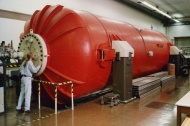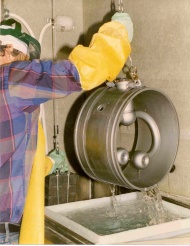Difference between revisions of "Main Page"
(→The Collaboration) |
(→Research Opportunities) |
||
| Line 64: | Line 64: | ||
* Students needed to help in developing simulation codes in two areas: | * Students needed to help in developing simulation codes in two areas: | ||
| − | 1) spin dynamics and tracking | + | 1) spin dynamics and tracking |
| − | 2) dynamics of high intensity beams: space charge,impedances, beam-beam, etc | + | 2) dynamics of high intensity beams: space charge,impedances, beam-beam, etc |
Contact: Alfredo U Luccio at Luccio@bnl.gov | Contact: Alfredo U Luccio at Luccio@bnl.gov | ||
Revision as of 15:38, 21 January 2009
Center for Accelerator Science and Education |
|
The Center for Accelerator Science and Education (CASE) will pursue cutting edge accelerator science and R&D, training of next generation accelerator scientists - graduate and post doctoral – through courses, laboratory and experiments on accelerators. Undergraduate opportunities will play a significant goal of attracting students to the graduate program through introduction to accelerator courses, accelerator laboratory work and summer research opportunities at BNL. The proposed educational program will start with a short term abbreviated educational program of undergraduate, graduate and R&D that will evolve over time. |
GoalsThe main goals of CASE are:
Courses taught by CASE Faculty
The development of CASE capitalizes on resources at both institutions:
|
The Collaboration
|
Research OpportunitiesCASE faculty are involved in many exciting projects. Please contact us for more information.
1) spin dynamics and tracking 2) dynamics of high intensity beams: space charge,impedances, beam-beam, etc Contact: Alfredo U Luccio at Luccio@bnl.gov
|
Past ProjectsFirst on its own and then as an injector to the Superconducting Heavy Ion Linac, FN-8 was used for Nuclear Physics research at Stony Brook for 40 years.
The Stony Brook Superconducting Heavy Ion Linac was commissioned in 1983 and used until 2007. Superconducting RF research at Stony Brook led to the development of the SQWR, the SRFQ and the CPM based SRF controller, among other achievements.
|

